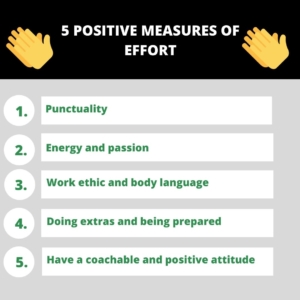Below, guest blogger and ACI Coach, Josh Nevett gives us his 3 main reasons to seek professional coaching for your child.
Every parent wants the best for their child, and this is no different when it comes to helping them pursue their cricketing dreams! Whilst local club and school cricket can expose young players to highly experienced and skilled coaches, it is very difficult for these coaches to fully invest themselves in individual players in this setting.
So, where do we turn for that personal touch? The professionals of course! Here are some of the reasons that professional coaching makes for a great addition to the holistic development of a junior cricketer.
1. SMALLER GROUPS ALLOW FOR PERSONAL, OBJECTIVE FEEDBACK
Every player is unique, and it is pivotal that they are treated as such through targeted analysis and coaching.
Professional coaches bring a weight of experience and knowledge that allows them to recognise certain characteristics within players that may not be noticed in a local cricket club setting. For example, elements of technique and personality traits can be acknowledged and, therefore, the coach is able to help a player within their own personal nature. As the Australian run-machine, Steve Smith has shown, being unconventional is not something to discourage!
Rather than pressuring young players into conforming with the batting ‘textbook’, top-level coaches look to harness difference when it can contribute to overall development, shaping juniors into players who are confident in their personal set of skills. After all, new competitions and formats such as the IPL and ‘The Hundred’ have created an environment where the innovators of world cricket are able to thrive and are often the most successful!
Further, feedback from leading coaches always revolves around the goal of developing the best cricketer possible. There is no danger of coaches playing favourites in this setting; each individual is provided with information that has the players best interests at heart.
This is evident in the ACI’s implementation of video analysis into its programs, the camera never lies! How can you best demonstrate to a player the areas of strength or weakness in their game? By allowing them to see it with their own eyes. It is this level of attention to detail that serves as a contributor to efficient coaching sessions and in turn, (the outcome we’re always after) better matchday performance.
2. THERE IS MORE TO CRICKET THAN SKILLS
Whilst cricket can essentially be reduced down to taking wickets and scoring runs, it is an understanding of the complexities of the game that can boost a developing players achievement and enjoyment within the sport to the next level.
In the setting of club cricket, there is only a relatively small window of time available for teams to train and therefore key aspects of cricket such as tactical awareness, mental preparation and physical conditioning are neglected in favour of net-based skills training. This net training is useful for maximising the volume of practice in a large group, however, it doesn’t prepare players for match scenarios.
Tactical awareness is about establishing specific plans which can produce desired results on a regular basis. Tactics are needed to provide clear purpose and direction on the field; clarity of the mind is crucial to the execution of fundamental skills such as bowling the desired areas and selecting the appropriate shots to play as a batsman.
Professional coaches are able to prepare players mentally by determining their personal areas of fear, anxiety or stress surrounding the game and providing strategies to combat these inhibiting states. Creating an optimal headspace also involves boosting positive thoughts and emotions, so aspects of mindset such as confidence, achievement and calmness are also explored.
Thirdly, physical conditioning is essential to any successful cricket training regime as the modern player needs to be able to perform at high intensities, recover quickly and prevent injury. Specialised coaches are aware of this and make sure growing athletes are well equipped with fitness programs that are not just effective, but also fun!
From this it is clear that the environment created within a professional coaching setting allows for these not so well covered elements of cricket to be explored and, therefore, young players are able to get the maximum value out of the skills they already have.
3. DEVELOPMENT IS A 24/7 PROCESS
Professional coaches understand this and, therefore, are creative in forming training programs that players can undertake anywhere and at any time. The learning never stops.
This is contrary to the common status quo in local cricket, which is to train for a couple of hours, one night per week leading into matches. Whether its batting drills for the backyard or learning resources that teach key elements of technique and mindset, professional coaches are able to meet the demand of hungry young players who simply can’t get enough of this great game!
This also ensures that the hard work undertaken during in-person coaching is not lost or forgotten between sessions, fostering a process of continuous growth. A consistent approach allows each session to become a progression on the last which is the ideal environment for improvement to take place and learning to be maximised.
The ACI also incorporates a strong emphasis on reflection into its programs, encouraging players to look back on their time spent engaged in cricket in all settings to better understand how to get the most out of themselves.
The culmination of this is young cricketers who are driven, consistent and self-aware, a combination of traits which can be seen in the greats of the modern game.
Registration for the ACI's 2020/21 - Foundation (8 to 10 year-olds), Junior (11 to 14 year-olds), and Youth (15 to 17 year-olds) Academy Programs are now open. For more information please register your interest here


